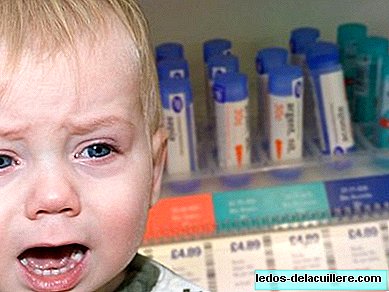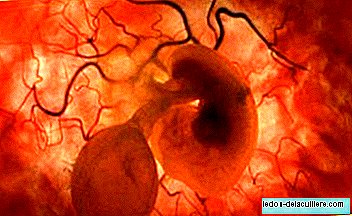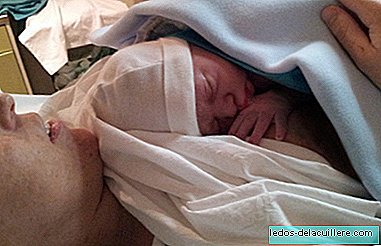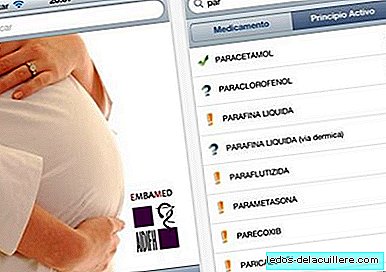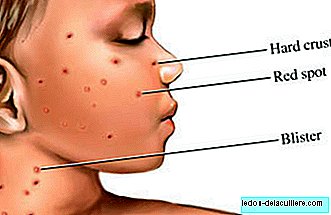
At this time of the year, chickenpox cases begin to occur in children. It is a disease caused by a virus of the herpes family, of contagion by respiratory and cutaneous route.
The diagnosis is easy and no test is necessary, only in very doubtful cases. The child first presents a few days as a cold with fever, is in poor general condition, and then begins with some granites throughout the body with different shapes, at first they are vesicles that break and crusts are formed.
The disease will be contagious until all the granites are crusted. It is so infectious that up to 80-90 percent of the susceptible cohabitants eventually become infected.
The treatment is simple and only symptomatic, we can't get it cured before. It is about giving anti-thermics such as paracetamol for fever (never aspirin), some chlorhexidine or betadine antiseptic in the wounds, and some childhood antihistamine if there is a lot of itching. Baths with oatmeal soap are also recommended to relieve itching.
In cases of very young children or with some underlying disease you can try to treat with an antiviral, but its use is controversial. If the wounds are overinfected, it may be necessary to use an antibiotic ointment. It is important isolate the child from the other children and also from all pregnant women.
But what happens when the child starts with the symptoms and his mother or someone around him is pregnant? The first thing is to find out if the pregnant woman has already passed the disease before. If this was so, the woman was already immunized and then there is no risk. In the event that the woman had been well vaccinated against the disease, she would be immunized and there would be no risk.
In Spain, less than 5 percent of pregnant women are susceptible to chickenpox. If the mother does not know for sure if the disease happened or was vaccinated, she should immediately go to her gynecologist.
During the first and third trimesters of pregnancy, serologies of different infectious diseases are performed, including chickenpox, to know if the future mother has already passed these diseases or was vaccinated or, on the contrary, continues to be susceptible to them. In addition, the analyzes of both trimesters are compared to know if any of these infections contracted during pregnancy.
In the case that the serologies confirm that it is not immunized, and the mother has had contact with a sick child, there is a small risk that the virus will be transmitted to the fetus. This contagion is dangerous during the first-second trimester (between 8 and 20 weeks approximately) and especially in the last days before delivery.
If it was spread at the beginning of pregnancy, the consequences may be more serious and the fetus may suffer from different types of malformations. If the baby becomes infected just before delivery, the child may suffer a neonatal chickenpox within a few weeks after birth, which may be more or less severe depending on the time of infection.
To prevent the fetus from suffering from any of these alterations, the pregnant woman or the exposed newborn is treated with a specific immunoglobulin injection against the virus that is effective in stopping this disease.
It is important to emphasize the importance of vaccination of women against chickenpox to avoid all these cases. Remember that there is no consensus between the different Autonomous Communities and in each area it is vaccinated at different ages. The AEP recommends vaccinating from 15 months of age.
One last point, you have to be very careful when taking a sick child to a hospital. Hospital emergencies are now crammed with susceptible children and mothers, and we all know the hours you can be in a waiting room and the high probability of passing it on to your partner.





